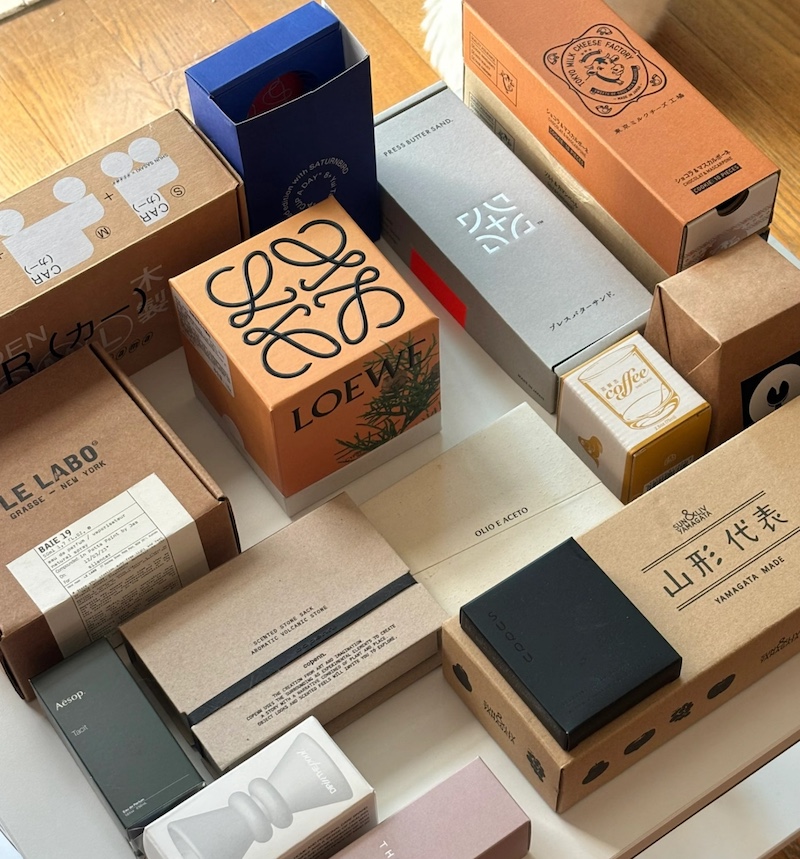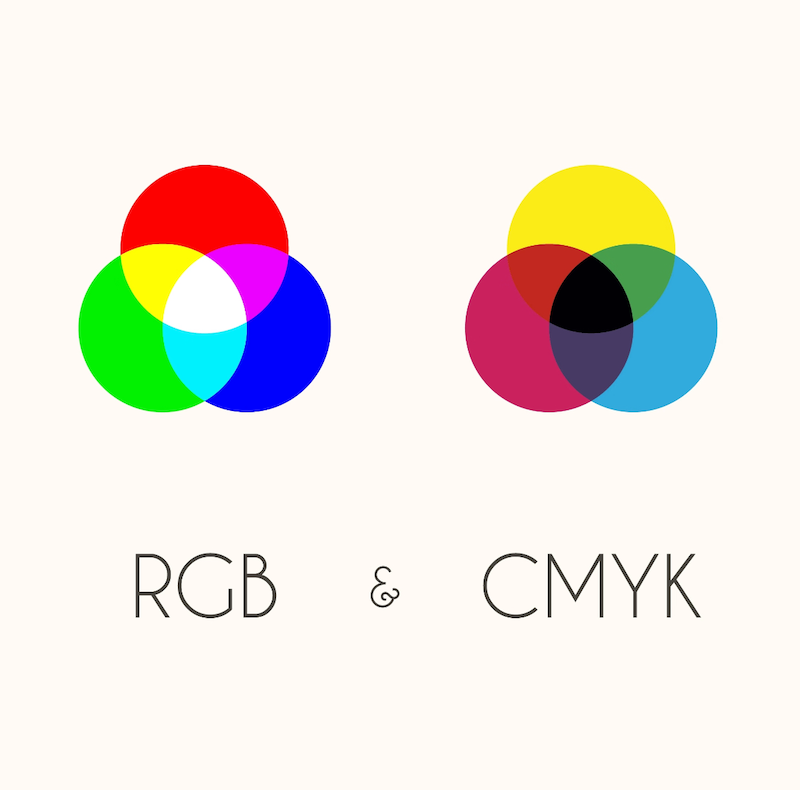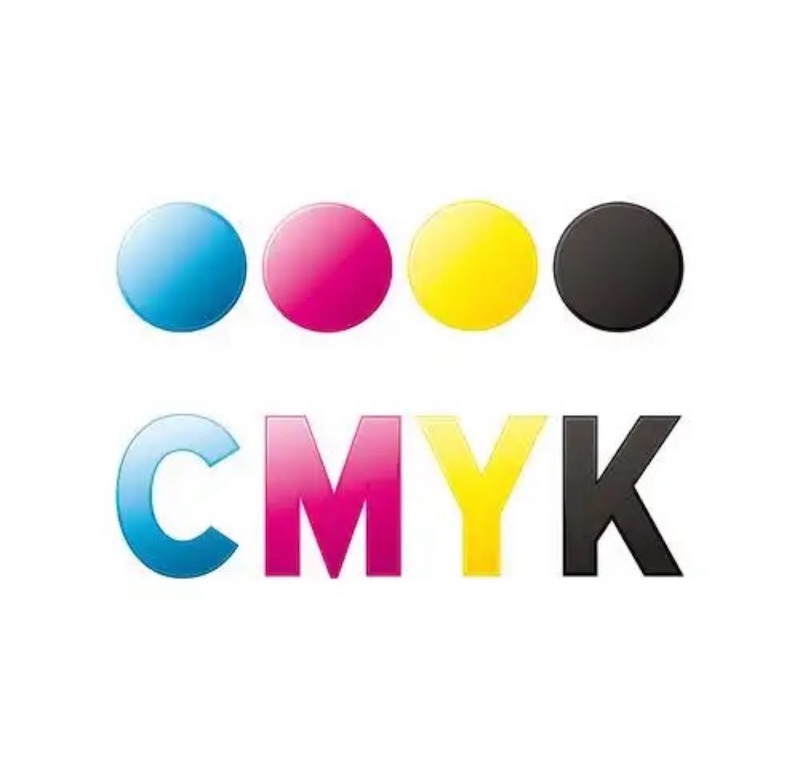What is CMYK Printing?
If you have ever had a project designed or printed on a large scale, chances are that you have heard of CMYK. These four letters do not provide much of a clue as to what they are or what they are supposed to do, but it is worth knowing about them when doing any print job.
Firstly, CMYK is an acronym.

So, what is CMYK
CMYK is a colour model abbreviated as Cyan, Magenta, Yellow and Key (black). It is the industry standard for all print-related media, such as brochures, documents, and packaging, and comprises the four main pigments used in four-colour process printing.
The CMYK colour model can also refer to the entire colour printing process, whereby each image is divided into the four primary colour pigments of cyan, magenta, yellow, and black to create a combination of colours using only a small amount of ink.
You might now be wondering why we use the letter K or 'Key' to represent black. There are two reasons why this is the case. Firstly, Johann Gutenberg, the inventor of the printing press, was the first to use 'key' when referring to black, and this has continued to the present day.
The second is that B represents blue in the RGB colour system. RGB is not the same as CMYK; it is an abbreviation of red, green and blue, and is a widely used digital colour space for screens.
CMYK vs RGB vs Pantone

With another colour system having been introduced, it is necessary to discuss their differences in order to understand which colour system to apply to which purpose. We have already discussed RGB; however, to get a complete picture, we are going to add Pantone (PMS) to the list of colour systems, as this is another standard colour system that you may come across.
We will now examine the key characteristics of each colour system. If you are interested in learning more about the other colour systems, simply follow the links below.
The CMYK colour system:
A subtractive colour spectrum that uses ink to absorb colours on a light background, such as white paper. CMYK uses reflected light to produce the colours you see on paper.
CMYK combines four colours (cyan, magenta, yellow and black) to form other colours, also referred to as the four-colour process.
The CMYK colour space is mostly used for printed documents such as books, photographs, brochures and designs with more than one colour.
Although CMYK printing can cause minimal colour differences between prints, it is far less expensive and faster than Pantone.
The RGB colour system
This is a spectrum of colours that are additive and utilise light directly to display colours rather than reflecting light.
RGB consists of red, green and blue, which are used to create other colours on a screen.
The RGB colour space is widely used in digital technology, such as on televisions, computer monitors, phones and tablets.
When preparing to print, you should convert RGB to CMYK or use the CMYK colour system instead – more on this below.
The Pantone Matching System (PMS)
Pantone offers more than 1000 colour shades, providing a wider and more precise variety of unique colour tones.
PMS involves printing pre-mixed solid colours to produce the same colours consistently, a process referred to as spot colours.
Like CMYK, Pantone can be applied to printed materials. It is ideal for branding or when it is necessary to match the colour exactly.
Although Pantone is more accurate than CMYK, the colours can vary across media due to the absorption of inks. For example, a Pantone colour will look different when printed on paper compared to plastic.
Pantone is also far more costly and time-consuming than CMYK. With PMS, you pay for each colour used.

The purpose of CMYK over RGB
As we have already advised, it is always best to convert projects to CMYK prior to printing in RGB. The CMYK colour model was developed in response to the inefficiency of the RGB colour model for printing. CMYK is specifically designed for use with ink, whereas RGB is designed for digital displays.
In RGB, three colours (red, green and blue) must be combined to achieve white, which is the most common colour in documents containing text. For example, paper is already white, and the RGB system cannot handle the quantity of ink required for printing on white paper.
This is why the CMY (cyan, magenta, yellow) colour system was developed for printing! Cyan and magenta combine to form blue; magenta and yellow combine to form red; and yellow and cyan combine to form green. Combining the three colours forms key, or black. This significantly reduces the amount of ink required to print a variety of designs and colours.
Unlike RGB, which adds colours, CMYK is a subtractive colour system, meaning it uses much less ink, as depicted in the figure below.
Converting RGB to CMYK
Now that you understand why the CMYK colour system is superior to RGB for printing, how would you convert an RGB project to CMYK?
While most colours can be converted between the two systems, minor colour variations are to be anticipated. For example, what appears blue in the RGB colour space may appear purple in the CMYK colour space. This is why we strongly recommend designing any work to be printed in CMYK in advance.
If you already have your project in RGB, just follow these simple steps!
1.Make a duplicate of your original picture, then open both copies and the original in Adobe Photoshop. This provides you with a reference point when changing your image.
2.To convert a copy, select the copy you wish to convert and choose Image > Mode > CMYK Color from the main toolbar at the top of the screen.
3.You're done! Go back to your original RGB image and adjust the colours where necessary.
Before submitting your project to the printing press, we would advise seeing a printed version of your project to prevent expensive mistakes and ensure accuracy.
CMYK: your next packaging
Since RGB is only available for digital displays and Pantone is costly, the CMYK colour system has become popular for packaging as it uses less ink overall while still producing precise colours.
This is why custom packaging works well with offset, flexo and digital printing using the CMYK colour system, producing standard brand colours and outstanding branding opportunities.
Still wondering whether CMYK is the right choice for your packaging project?
Call us now to find out how we can help you achieve the best possible colour match for your custom packaging project!





OEM Services
Can I request a sample before mass production?
Yes, we provide sample proofing before mass production to ensure that the design, materials, and quality meet your expectations. We encourage testing and approval before proceeding with full-scale manufacturing.
Special Shape Boxes
Can I order a sample of my packaging box?
Yes, we strongly recommend that you do so, we provide a variety of sample types to meet different usage situations and help you guarantee the best results!
Rigid Lift-off Box
What are the wholesale pricing options for bulk orders?
We offer competitive wholesale prices for bulk orders. Please contact our sales team for more details
Can I order a sample of my rigid box?
Yes, we strongly recommend that you do so, we provide a variety of sample types to meet different usage situations and help you guarantee the best results!
About Us
Do you inspect the finished products?
Yes, each step of production and finished product will be carried out inspection




Start Your Packaging Journey Today
Discover Our Curated Collection of Bespoke Packaging Cases & Tailored System Solutions
© 2025 WINPACK PRINTING. All rights reserved

























Wenhua Printing packaging
winpackprinting
Winpack Printing